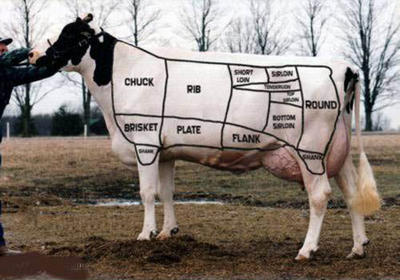Public availability of food safety testing data underpins efforts to convince a skeptical public that a product is microbiologically safe.
 Yes, testing has limitations, just like restaurant inspections, but the goal should be to figure out how best to make that information available – rather than saying people can’t have it or handle it.
Yes, testing has limitations, just like restaurant inspections, but the goal should be to figure out how best to make that information available – rather than saying people can’t have it or handle it.
Ever since the fall 2006 spinach E. coli O157:H7 outbreak – and even back to our first on-farm food safety programs with Ontario Greenhouse tomatoes, I have been a strong advocate of public data. Coupled with marketing meaningful food safety steps, data and transparency can go a long way to enhancing public confidence.
On Dec. 31, 2009, Beef Products Inc. took a fairly public hit when the N.Y. Times questioned the efficacy of the company’s use of ammonia as an antimicrobial treatment for ground beef.
BPI founder and chairman Eldon Roth announced Friday at the National Meat Association’s annual conference that the company will post on its Web site 100 per cent of its results from the processor’s testing for E. coli O157:H7 and salmonella.
"We’re going to be 100 percent transparent," Roth told Meatingplace in an interview following the announcement.
.jpg) The first order of business, Roth said, is having third-party auditors accredit BPI’s testing and sampling procedures in its four processing plants as well as laboratories the company uses. The plants will be audited one at a time, with the goal to have the first plant accredited and able to post results within two months or less, he said. The aim is to have all plants ready to do so within the next six to eight months, he added.
The first order of business, Roth said, is having third-party auditors accredit BPI’s testing and sampling procedures in its four processing plants as well as laboratories the company uses. The plants will be audited one at a time, with the goal to have the first plant accredited and able to post results within two months or less, he said. The aim is to have all plants ready to do so within the next six to eight months, he added.
BPI produces approximately 600 million pounds of product per year. The industry standard for sampling is N=60, or 60 samples per lot. BPI currently has an N=167 program and plans to expand it to N=334.
"We’re not promising to be perfect, but I will promise that we will be better," he told Meatingplace.
Good for them.
 Dunes, S.D., headquarters will continue operations.
Dunes, S.D., headquarters will continue operations.
 Yes, testing has limitations, just like restaurant inspections, but the goal should be to figure out how best to make that information available – rather than saying people can’t have it or handle it.
Yes, testing has limitations, just like restaurant inspections, but the goal should be to figure out how best to make that information available – rather than saying people can’t have it or handle it..jpg) The first order of business, Roth said, is having third-party auditors accredit BPI’s testing and sampling procedures in its four processing plants as well as laboratories the company uses. The plants will be audited one at a time, with the goal to have the first plant accredited and able to post results within two months or less, he said. The aim is to have all plants ready to do so within the next six to eight months, he added.
The first order of business, Roth said, is having third-party auditors accredit BPI’s testing and sampling procedures in its four processing plants as well as laboratories the company uses. The plants will be audited one at a time, with the goal to have the first plant accredited and able to post results within two months or less, he said. The aim is to have all plants ready to do so within the next six to eight months, he added.